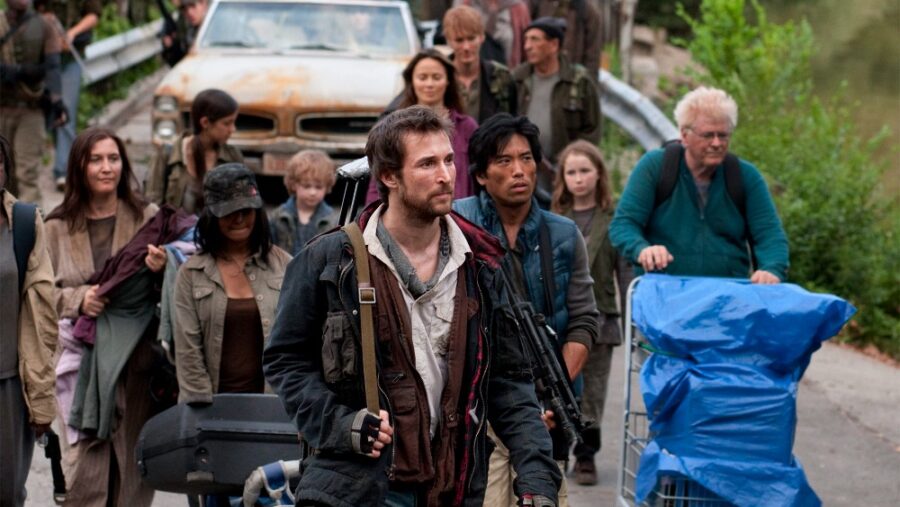Forgotten Alien Invasion Series From Steven Spielberg Was One Of The Biggest Ever

In the world of sci-fi, we’re used to the big-budget marquee names, like Star Trek and Star Wars, and there’s the low-budget shows that go far above their means, like Farscape, but there’s a middle ground that today, is rarely touched. It’s the world of big-budget television sci-fi that’s “good” but never reaching “great,” and is forever cursed with being somewhere between underrated and overrated for all eternity. That’s exactly where Falling Skies lands as a massive cable hit that never reached cult status but isn’t all that hated.
A Huge Debut

Released in 2011, Falling Skies was a summer blockbuster for TNT, becoming, at the time, the largest debut for a cable series of the year, reaching 5.9 million viewers. More impressively, the Season 1 finale retained this number, with 5.6 million checking in, which is a level of holdover unheard of for a sci-fi series on cable. It’s easy to see why the audience, once hooked, needed to see where the story was going because the show started strong and kept picking up steam.
After The Invasion

Set in Boston, Falling Skies picks up after the alien invasion has decimated the planet and killed 90 percent of the global population, with the focus on the Mason family, led by Tom (played by ER’s Noah Wyle). Joining the former history teacher are his kids, Hal (Drew Roy), Matt (Maxim Knight), and Ben (Connor Jesup), as they join the 2nd Mass, a collection of survivors under the leadership of former Military Officer Dan Weaver (Will Patton). The situation is incredibly bleak, with the group struggling to survive on a daily basis against the invaders, who employ terrifying tactics that tear the family apart.
Body Horror And Psychological Trauma

I’m a fan of alien invasion shows, having sat through both seasons of the V revival and even enjoyed Earth: Final Conflict back in syndication, so when Falling Skies makes it clear that the invading Espheni are playing for keeps, I was intrigued. Early on, Ben is attacked and comes under the mental control of the alien hivemind through a biological implant that kills the children when it’s removed. As dark and disturbing as that is, there’s a solution presented early on, but it’s not perfect, and to the show’s credit, it does go into the psychological trauma of living under hypnotic control.
From The Mind Of Steven Speilberg

The first season of Falling Skies is dark and makes Battlestar Galactica look like Star Trek, but the show couldn’t keep that sense of oppressiveness and constant dread going for all five seasons. Steven Spielberg worked on the first season and had a clear vision for what he wanted to see, stating in interviews that “I’ve always been interested in how we survive and how resourceful we are as Americans. How would the survivors feed the children? How do they resupply themselves militarily in order to defend and even take back what they have lost?”
Streaming On Max


REVIEW SCORE
What happened to the show is that the journey to answering those questions was more intriguing than the result, which involved another alien species getting involved and some amazing leaps of logic that betray the relatively grounded nature of the first seasons. Falling Skies is a good watch, but not a great one, with some creative concepts. However, at the end of the day, it is nothing that I haven’t already seen elsewhere; it is sometimes done worse and sometimes done better.
On the whole, the show is, as the kids say, “mid.” You can catch Falling Skies on Max, and what I can say is no matter how it ended, there’s a clear ending, and it’s at least better than the series finale of Lost.












